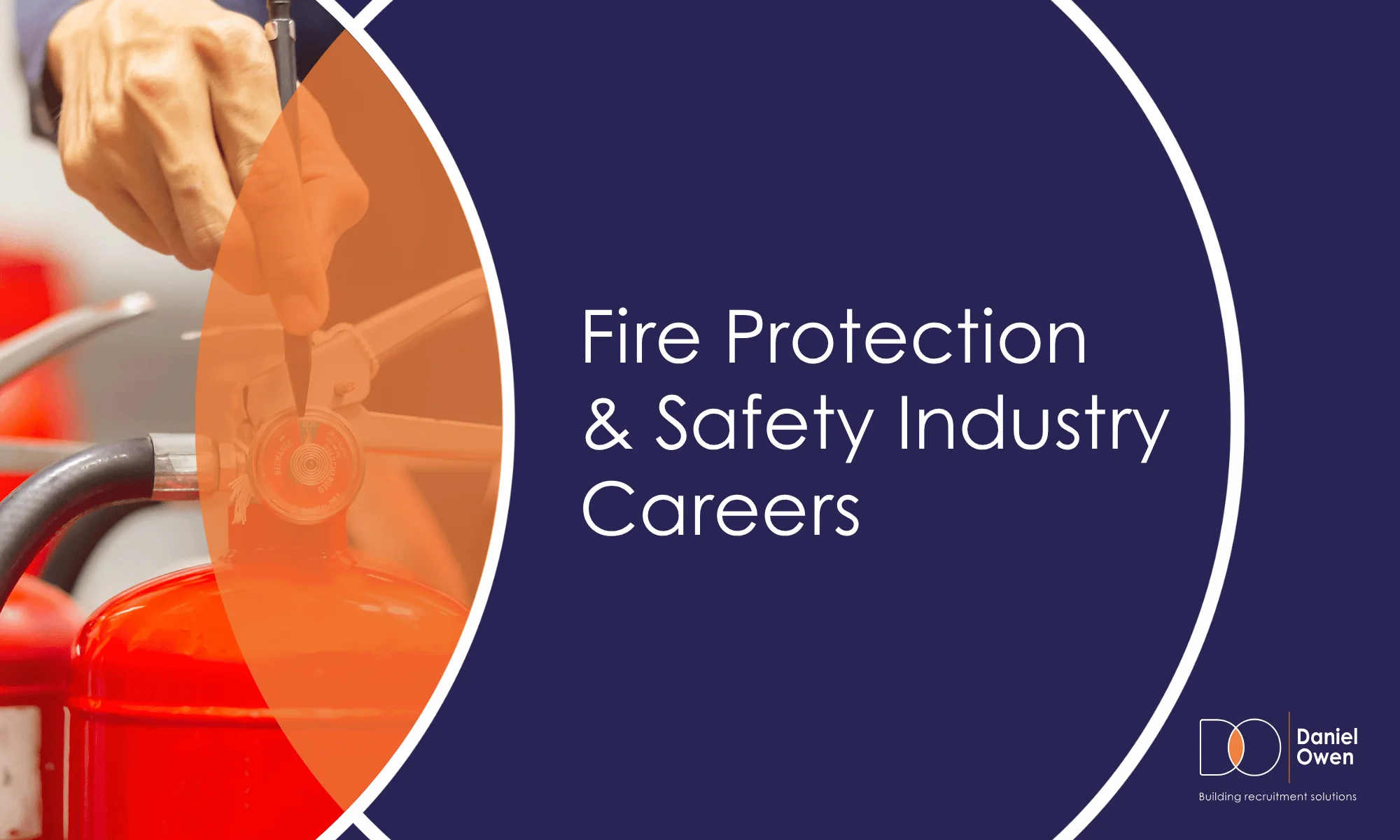
How to Start a Career in the Fire Protection & Safety Industry
15 Oct, 202510 MinutesFire safety is no longer a “nice to have”; it’s a requirement across every part of the built...

Fire safety is no longer a “nice to have”; it’s a requirement across every part of the built environment.
From social housing fire safety to commercial property fire safety, employers are under increasing pressure to meet strict compliance standards, driven by new legislation such as the Building Safety Act.
As a result, skilled professionals are in high demand across various roles, including fire door installation, fire risk assessment, compliance management, and related trades.
Whether you’re beginning your career or advancing into senior fire safety management, this sector offers long-term security and top-tier career progression.
Jobs Available in Fire Safety
Fire safety jobs span both technical trades and compliance-based positions. Some of the most in-demand roles in the sector currently include:
Trade & Installation Jobs:
- Fire stoppers – installing critical fire-stopping systems
- Fire door carpenters & joiners – building and fitting fire-resistant doors and frames
- AOV (Automatic Opening Vent) installers – delivering smoke control & ventilation systems
- Fire alarm technicians/testers – ensuring life-saving alarm systems are maintained and operational
Compliance & Inspection Jobs:
- Fire door inspectors – verifying that installations meet FIRAS, BM Trada, or IFCC accreditation standards
- Compliance officers – overseeing regulatory adherence across multiple sites or property estates
- Fire risk assessors – identifying hazards, producing compliance reports, and making clear recommendations to reduce risk
Get a closer look at more fire safety jobs >>
Training and Fire Safety Qualifications
One of the most significant steps in building a successful career in fire safety is securing the right qualifications.
Core qualifications, such as the NEBOSH Fire Safety Certificate and IOSH courses, are almost essential for many roles in property services that involve fire safety.
Other specialist accreditations can really boost your skills and career.
FIRAS, BM Trada Q-Mark and IFCC Certification are all key for fire door installation, inspection, and passive fire protection.
Apprenticeships and NVQs are ideal for trade-based entry-level roles like carpentry, electrics and building services.
How much do fire safety workers earn in the UK?
Earnings vary significantly depending on the role, experience, sector, and location. Below are some rough guidelines:
- Entry-level fire safety managers – around £26,000 per year
- Average industry salary – approximately £32,500
- Experienced senior fire safety managers – £50,000–£70,000+
- Trades & technical positions (e.g., fire door carpenters, fire stoppers) – starting lower but rising steadily as you gain accredited certifications.
For the best and most up-to-date salary information, you are best off having a look at our current live vacancies.
What sectors are the jobs in?
One of the main advantages of the sector is the range of industries that require fire safety expertise:
- Social housing – fire safety officers and inspectors ensuring compliance across estates
- Commercial property fire safety – in offices, retail chains, and industrial buildings
- Facilities management fire safety – covering schools, hospitals, care settings, and public spaces
- Construction & new build – integrating fire safety from project design to final handover
- Private rental sector – landlords and property managers meeting stringent safety regulations
Your skills are highly transferable, opening up opportunities to move between sectors and progress into more specialist or senior roles.
Learn more about the property services landscape in our property services overview >>
How to get into fire safety
Depending on your background, there are several common entry routes.
Starting out as a tradie already? You can enhance your fire safety skills by simply applying and being open to upskilling within your new fire safety role. Whether you’re a carpenter, electrician, or multi-trader, you can move into accredited positions with ease.
Suppose you're interested in pursuing NEBOSH and IOSH pathways. In that case, you can complete these qualifications and enter roles such as a fire risk assessor or compliance officer and get started with fire safety.
More entry-level job seekers could look at relevant apprenticeships that offer hands-on training combined with formal certifications.
Want to really get ahead?
- Gain hands-on experience through entry-level trade or compliance positions.
- Invest in accredited qualifications that match your chosen pathway.
- Network with industry professionals via associations, exhibitions, and sector events.
Why choose a career in fire safety?
- Job Security – demand is growing due to tighter regulations and a shortage of skilled professionals
- Progression Opportunities – from trades to management, inspection to consultancy, the career ladder is wide and upward
- A Mix of Sectors – as mentioned, fire safety spans many sectors. Not feeling it in one sector? It’s easy to move to another for a fresh perspective.
- Meaningful Impact – protecting people and property, ensuring safe environments across homes, workplaces, and public buildings
Choosing this career pathway allows you to be part of an industry with both longevity and purpose.
Get Started with Daniel Owen
We connect skilled fire safety professionals with employers across social housing, commercial property, facilities management, and construction.
Whether you’re looking for a fire safety job yourself or need professionals to support your projects, our specialist recruitment consultants are here to support you.

